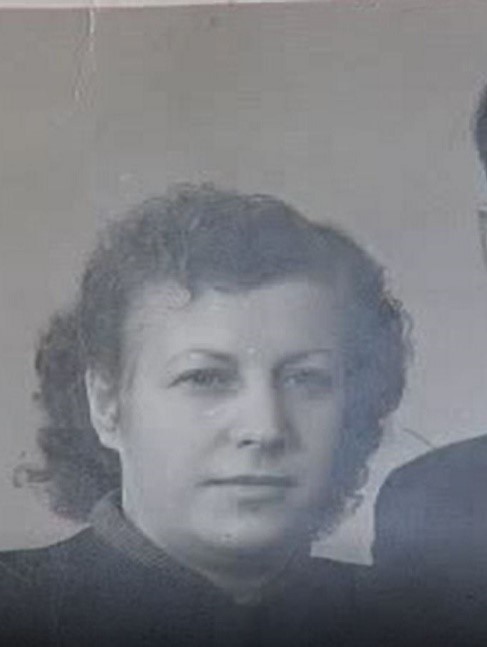Dora Kardovskaia was born in 1920 in Kherson, a port city on the Ukrainian Black Sea coast, as Dora Gimelshtein, one of six children. Her father Iosif was a clerical worker at a local sovkhoz (state-owned farm). His salary was meager, and the mother did not work. For this reason, the 15-year-old Dora began to work as a clerk at a factory after finishing school in 1936.
Following the outbreak of the Soviet-German War in June 1941, Dora volunteered for a military nursing course. A month later, she was given the option of enlisting in a reconnaissance team subordinated to the Intelligence Department of the 9th Army; the team was to be deployed in German-occupied territory, gathering intelligence and transmitting it to the 9th Army. Dora agreed enthusiastically. At the last moment, the supervising officer was shocked to learn that one of the would-be spies bore the typically Jewish last name Gimelshtein. Nevertheless, after some hesitation, he supplied Dora with fake ID documents giving her name as Feodora Vasilyeva (the first name Feodora enabled her to keep using the diminutive form Dora), an ethnic Russian from the Urals. The girls were given a cover story, according to which they had been drafted for fortification work, and were then stranded in occupied territory. Dora and some other girls from the team were taken to Tokmak, a town near Zaporizhzha that had been abandoned by the Red Army in early October 1941.
Dora's career as a spy was short-lived: In December 1941, the girls' radio set was destroyed, and they could no longer transmit information. Dora and a friend of hers moved eastward, hoping to cross the frontline in the Donbass region. However, they were detained by Italian troops; after a series of interrogations, they were released and ordered to go back to Tokmak. Dora lived in Tokmak until May 1942, when she, as a "Russian", was deported to Germany for forced labor. She worked at a military plant.
In the last days of December 1942, Dora and her friend were arrested by the Gestapo and taken to a Gestapo prison in Munich. The girls were accused of being Soviet spies. Despite brutal interrogations and beatings, the girls were adamant in their insistence that they were not spies, and knew nothing. A Gestapo officer told them that they would be sent to a place from which no one had ever come back – and the girls were transported to Auschwitz. There, Dora worked at an agricultural farm; she realized that her lot as a "Russian" was better than that of the Jewish women in the camp. In January, the Nazis deported the non-Jewish laborers, including Dora, to a camp in northern Germany, where she was liberated by the Red Army.
Dora's "filtration" – i.e., screening by the SMERSh (the anti-spy agency of the Red Army) –was easier than that of most other former POWs (many Soviet POWs liberated in Germany ended up in GULAG camps). Nevertheless, after the war she was repeatedly summoned to the local KGB office in Kherson for screening.
Dora Gimelshtein-Kardovskaia did not receive any decorations during the war; only in the 1980s-90s was she awarded a military order and a medal.







